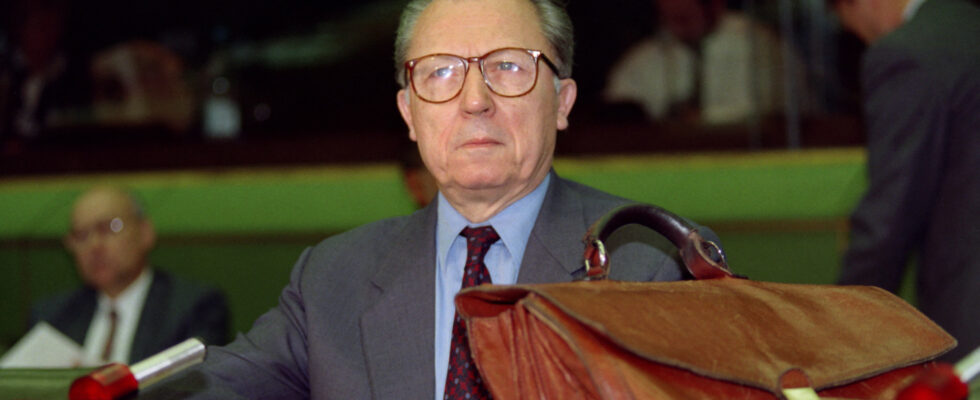Romain Rouillard / Photo credit: Franck FIFE / AFP
modified to
9:24 p.m., December 27, 2023
“Nationalism is war.” A famous sentence, pronounced by François Mitterrand in 1995, but which must already, three years earlier, resonate in the mind of Jacques Delors, former great architect of the European project, who died this Wednesday at the age of 98. In 1992, the man who chaired the European Commission at the time worked in favor of the adoption of the Treaty of Maastricht, a major text of European construction which structures the 12 Member States of the Union around three pillars: the European Community , police and judicial cooperation in criminal matters, but also cooperation in matters of common foreign and security policy.
In a major declaration on May 28, 1992, Jacques Delors called for a turn away from “purely national” politics. “A luxury that no one can afford anymore, neither politically nor economically,” he added. François Mitterrand’s former Minister of the Economy also saw it as “a risk” because, according to him, “Europe would be torn apart and destabilized again”.
A warning against “certain populist tendencies”
And to continue: “Let us therefore guard against the virus of nationalism which is raging again today in the east of Europe”, referring to the resurgence of this political doctrine in a region of the world freshly freed from the yoke of the USSR, and where tensions began to emerge, particularly in the Balkans, around the new borders born from the breakup of the Soviet bloc.
A fertile ground for the affirmation of a nationalist discourse that Jacques Delors abhorred and did not want to hear under any pretext. “We should blame ourselves for our short-sightedness and our political bankruptcy if today we followed certain populist tendencies, certain emotions born of insecurity and fear of the future,” he concluded.
A few months later, Jacques Delors even assured that he favored the victory of yes in the referendum on the Treaty of Maastricht over a candidacy for the presidential election of 1995. A declaration which quickly took on the appearance of a prophecy since, on September 20, 1992 , France declared itself in favor of the adoption of the treaty (with 51.04% of the votes in favor of yes) and, three years later, Jacques Delors announced his decision not to run for the supreme office at the end of the two seven-year terms by François Mitterrand.
